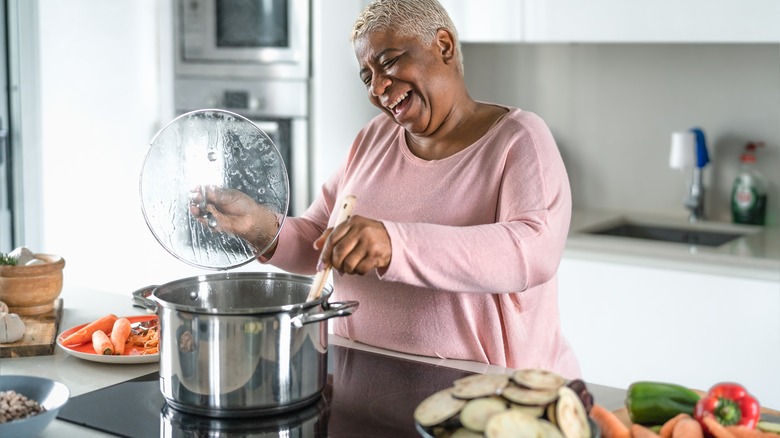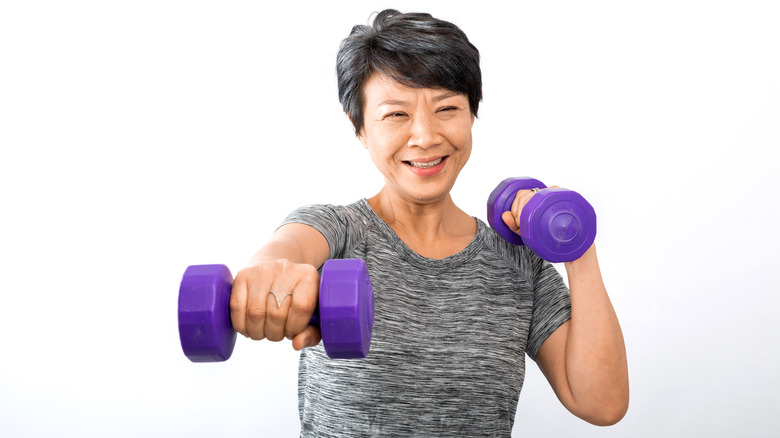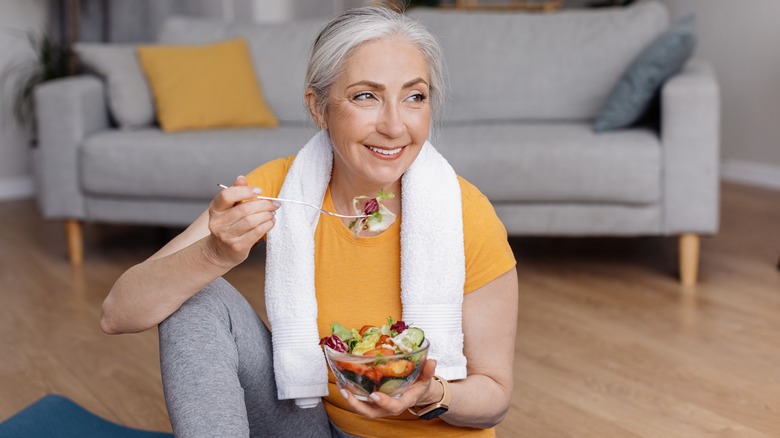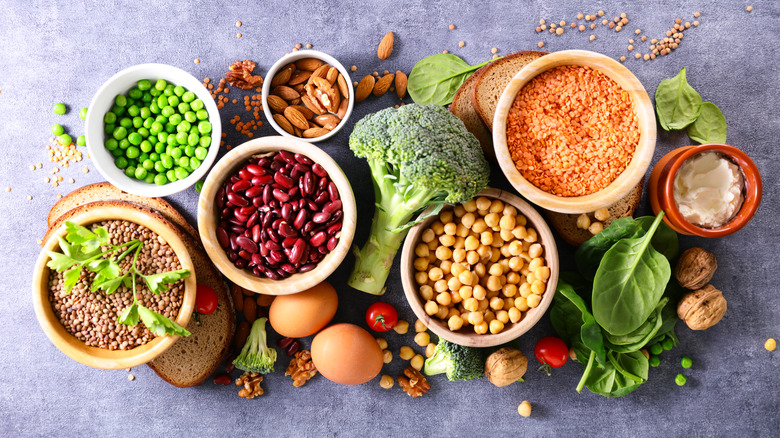5 Healthy Ways To Lose Weight For Women Over 50
Weight loss can be difficult at all stages of life, but many people find that the process gets even harder with age. Due to reasons such as age-related muscle loss, a slowing metabolism, lifestyle changes, and hormonal fluctuations, you might find that shedding pounds feels impossible once you hit 50 (via Everyday Health).
Of course, staying on top of your physical health also becomes more important than ever as you get older. The National Institute on Aging explains that maintaining a healthy weight is vital to aging well, as being overweight can increase the likelihood of older adults developing conditions like heart disease, high blood pressure, and diabetes. It's worth noting that being underweight as you age can also increase your risk of developing health conditions like osteoporosis and anemia.
While trying to lose weight when you're a woman over 50 may feel impossible, it's certainly achievable. There are a few methods that have proven to be particularly effective for older adults who would like to shed some pounds.
Stop dieting
Dieting may seem like the correct way to lose weight, but as 97% of diets fail, this is just something else that people get wrong about weight loss (via Fit & Well). By imposing severe food restrictions on yourself, you can deprive your body of essential nutrients, impact your body's natural hunger cues, and negatively affect your relationship with food.
To design an eating plan that will promote weight loss without the negative consequences of a fad diet, Healthline recommends working with a dietician. With their experience and qualifications, a dietician can help you explore eating plans that are not restrictive or harmful and can sustain you for the long term.
Intermittent fasting
Johns Hopkins Medicine describes intermittent fasting as a way of eating that alternates between regular periods of fasting and eating normally. This can be particularly helpful for women over 50 because intermittent fasting can slow cell decline and prevent age-related fluctuations in the energy-producing parts of your cells, per Healthline. The reduced calories from intermittent fasting can lead to sustainable weight loss.
One of the most popular intermittent fasting plans is 16/8. Following this schedule, participants eat during an eight-hour stretch of time every day and then fast for the remaining 16 hours.
Increase your muscle mass
Increasing your muscle mass through strength training is one of the best ways for women over 50 to lose weight. According to Get Healthy U, bodies naturally experience muscle loss from around the age of 30, so it's important to build muscle to replace what's lost. Maintaining muscle as you age will allow you to carry out daily tasks with more ease. Additionally, weight training speeds up the metabolism and decreases body fat.
Older adults should aim to strength train two to three times a week and follow routines that incorporate all the major muscle groups, per the Australian Fitness Academy.
Calculate your caloric needs
Though many factors can impact a person's weight loss, losing weight simply comes down to the equation of calories in versus calories out. By calculating your caloric needs and then establishing a healthy deficit, you can sustainably lose weight over the long term. A health professional, such as a general practitioner or dietician, can help you to find your specific caloric needs.
Once you know how many calories you should be eating to lose weight sustainably, you can look for creative ways to cut calories out of your meals. Healthy Women recommends using less oil while cooking, as 1 tablespoon of olive oil contains around 120 calories. To stay on top of your calorie count, you can try keeping a food journal, which is a proven habit to assist in weight loss.
Make sure you're getting enough protein
When it comes to designing a healthy eating plan to achieve long-term weight loss, remember that the quality of the foods counts just as much as the quantity. Some foods will require much smaller quantities to fill you up, and thus will take up fewer calories. For example, you're more likely to feel full from one piece of whole wheat toast with a higher fiber content than two slices of white toast.
WebMD advises choosing foods with plenty of protein, as protein keeps you fuller for longer and mitigates spikes in blood sugar, which can lead you to eat unhealthy sugary foods. Dr. Reshmi Srinath, the director of the Weight and Metabolism Management Program at Icahn School of Medicine at Mount Sinai, recommends adding nuts to your meals throughout the day to boost their protein content.





